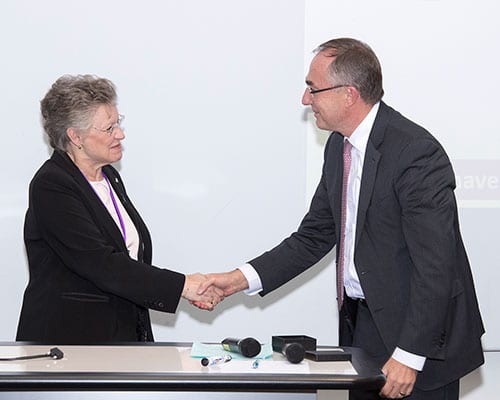UCL Prize Lecture in Clinical Science
By ucyow3c, on 28 October 2016
Written by UCL MBPhD student Callum Donaldson
Professor François Barré-Sinoussi was the well-deserved recipient of this year’s UCL Clinical Prize Lecture award.
In 1966, Professor Barré-Sinoussi began her undergraduate studies in Natural Sciences at the University of Paris. Following this, she undertook a PhD project with Jean-Claude Chermann at the Pasteur Institute, studying a retrovirus capable of inducing leukaemia in mice.
After obtaining her PhD in 1974, Professor Barré-Sinoussi decided to travel to the United States to begin a post-doctoral fellowship with Bob Bassin at the NIH. The main aim of the project was to identify the viral target of murine leukaemia virus (MLV) restriction factor Fv1.
After a year at the NIH, Professor Barré-Sinoussi returned to Paris to continue investigating the relationship between retroviruses and cancer.
In the early 1980s clinicians were faced with the emergence of a frightening new epidemic, now known as AIDS. Perplexed clinicians in Paris contacted virologists at the Pasteur Institute asking them for their assistance in identifying the responsible pathogen.
 Close
Close



